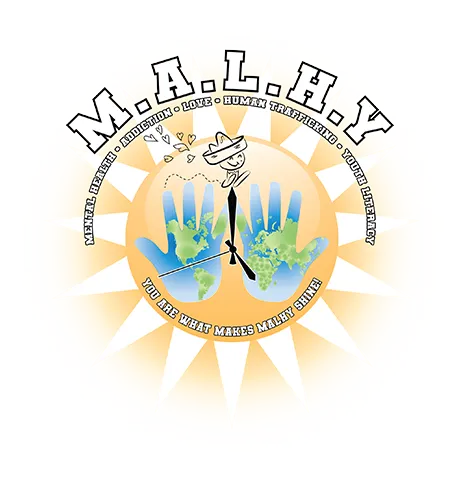Blog

California Debates Stronger Penalties for Teen Sex Trafficking: What You Need to Know About AB 379
In a pivotal shift in California's approach to combating child sex trafficking, lawmakers are debating whether to expand felony penalties to those who solicit sex from 16- and 17-year-olds. The bill at the center of the discussion, Assembly Bill 379 (AB 379), has sparked intense debate, particularly among Democrats, about balancing justice and fairness when protecting vulnerable teens.
What Is AB 379?
Currently, California law classifies it as a felony to purchase sex from a child aged 15 or younger. However, when it comes to 16- and 17-year-olds, prosecutors must typically prove that the teen was trafficked to pursue a felony charge against the buyer. AB 379, authored by Assemblymember Maggy Krell—a former prosecutor—aims to close that gap.
With recent amendments, AB 379 would now make it a felony to solicit or purchase sex from a 16- or 17-year-old if the offender is more than three years older than the teen. This change is designed to hold older adult offenders accountable while protecting teens in consensual relationships with partners close in age.
MALHY Attends Briefing in Temecula
Our team at MALHY was recently in attendance at Temecula City Hall, where we met with Assemblywoman Kate Sanchez, community advocates, and other local organizations to discuss the progress of AB 379. It was a powerful reminder that we are not alone in this fight to protect our youth. As one woman in attendance shared, “We all just want to help. Please just tell us how.” That moment echoed the deep concern shared by everyone in the room—people who are ready to act, support, and stand up against exploitation.

Why the Controversy?
The bill initially included the expanded felony charge, but Assembly Democrats, particularly those in the progressive wing, voted to remove it. Concerns centered around the possibility that the law could be used to criminalize consensual relationships, especially in interracial or LGBTQ+ contexts, where family disapproval might lead to legal complaints.
However, public backlash and political pressure quickly mounted. Governor Gavin Newsom, fellow Democrats, and Republican lawmakers urged a reconsideration. Supporters argued that the law is urgently needed to protect teens from sexual exploitation and that the lack of a clear felony charge was a legal loophole exploited by predators.
The Compromise
In response to the concerns, Democratic leaders reinstated the felony provision with a critical revision: adults within three years of the minor's age would not be subject to felony charges. Instead, their offense would remain a misdemeanor. This update is aimed at preserving the spirit of the bill, targeting adult predators, while avoiding unintended criminalization of close-in-age relationships.
Under the revised AB 379, prosecutors now have three routes to pursue felony charges for child sex solicitation:
If the victim is under 16.
If the 16- or 17-year-old was trafficked.
If the offender is more than three years older than a 16- or 17-year-old victim.
The Political Fallout
This legislative battle has created a tense atmosphere in Sacramento. Republicans have criticized the initial decision to remove the felony clause, using it to suggest that Democrats are not prioritizing the safety of minors. Within the Democratic Party, the debate has highlighted ongoing divisions between progressive lawmakers and more moderate members focused on law enforcement measures.
What’s Next for AB 379?
The updated bill now moves to the Assembly’s Appropriations Committee. If it clears this hurdle, it will go to a vote before the full Assembly, then to the State Senate, and finally to Governor Newsom for a signature. While the bill has gained momentum, its passage is not guaranteed—especially as debate over justice reform and public safety continues to shape California politics.
The Path Ahead
AB 379 is more than just a legislative proposal—it’s a reflection of how California grapples with the complex issues of criminal justice, exploitation, and consent. With teen sex trafficking on the rise, many advocates see this bill as a much-needed step to close dangerous loopholes and strengthen protections for minors. Others urge continued caution and nuance, especially when crafting laws that can have far-reaching effects.
MALHY will continue to stand beside the youth and the community, advocating for laws that empower, protect, and educate.

California Debates Stronger Penalties for Teen Sex Trafficking: What You Need to Know About AB 379
In a pivotal shift in California's approach to combating child sex trafficking, lawmakers are debating whether to expand felony penalties to those who solicit sex from 16- and 17-year-olds. The bill at the center of the discussion, Assembly Bill 379 (AB 379), has sparked intense debate, particularly among Democrats, about balancing justice and fairness when protecting vulnerable teens.
What Is AB 379?
Currently, California law classifies it as a felony to purchase sex from a child aged 15 or younger. However, when it comes to 16- and 17-year-olds, prosecutors must typically prove that the teen was trafficked to pursue a felony charge against the buyer. AB 379, authored by Assemblymember Maggy Krell—a former prosecutor—aims to close that gap.
With recent amendments, AB 379 would now make it a felony to solicit or purchase sex from a 16- or 17-year-old if the offender is more than three years older than the teen. This change is designed to hold older adult offenders accountable while protecting teens in consensual relationships with partners close in age.
MALHY Attends Briefing in Temecula
Our team at MALHY was recently in attendance at Temecula City Hall, where we met with Assemblywoman Kate Sanchez, community advocates, and other local organizations to discuss the progress of AB 379. It was a powerful reminder that we are not alone in this fight to protect our youth. As one woman in attendance shared, “We all just want to help. Please just tell us how.” That moment echoed the deep concern shared by everyone in the room—people who are ready to act, support, and stand up against exploitation.

Why the Controversy?
The bill initially included the expanded felony charge, but Assembly Democrats, particularly those in the progressive wing, voted to remove it. Concerns centered around the possibility that the law could be used to criminalize consensual relationships, especially in interracial or LGBTQ+ contexts, where family disapproval might lead to legal complaints.
However, public backlash and political pressure quickly mounted. Governor Gavin Newsom, fellow Democrats, and Republican lawmakers urged a reconsideration. Supporters argued that the law is urgently needed to protect teens from sexual exploitation and that the lack of a clear felony charge was a legal loophole exploited by predators.
The Compromise
In response to the concerns, Democratic leaders reinstated the felony provision with a critical revision: adults within three years of the minor's age would not be subject to felony charges. Instead, their offense would remain a misdemeanor. This update is aimed at preserving the spirit of the bill, targeting adult predators, while avoiding unintended criminalization of close-in-age relationships.
Under the revised AB 379, prosecutors now have three routes to pursue felony charges for child sex solicitation:
If the victim is under 16.
If the 16- or 17-year-old was trafficked.
If the offender is more than three years older than a 16- or 17-year-old victim.
The Political Fallout
This legislative battle has created a tense atmosphere in Sacramento. Republicans have criticized the initial decision to remove the felony clause, using it to suggest that Democrats are not prioritizing the safety of minors. Within the Democratic Party, the debate has highlighted ongoing divisions between progressive lawmakers and more moderate members focused on law enforcement measures.
What’s Next for AB 379?
The updated bill now moves to the Assembly’s Appropriations Committee. If it clears this hurdle, it will go to a vote before the full Assembly, then to the State Senate, and finally to Governor Newsom for a signature. While the bill has gained momentum, its passage is not guaranteed—especially as debate over justice reform and public safety continues to shape California politics.
The Path Ahead
AB 379 is more than just a legislative proposal—it’s a reflection of how California grapples with the complex issues of criminal justice, exploitation, and consent. With teen sex trafficking on the rise, many advocates see this bill as a much-needed step to close dangerous loopholes and strengthen protections for minors. Others urge continued caution and nuance, especially when crafting laws that can have far-reaching effects.
MALHY will continue to stand beside the youth and the community, advocating for laws that empower, protect, and educate.
What We Do
MALHY provides free services and resources to those battling
Mental Health - Seeking Counseling, Mediation Services
Addiction – Recovery Program, Job Placement, Housing, Food, Clothing
Love – fosters a connection that goes beyond the superficial.
Human Trafficking – Medical Exams, Legal Document Prep, Legal Documents Served, Job Placement, Housing, Food, Clothing
Youth Literacy – Financial Work Shops, Etiquette Classes, Sports Camps
In addition, our Radical Change Program is free
and offers interactive workshops and expert-led discussions on vital topics such as online grooming, sextortion, addiction prevention, financial literacy, and safety both online and offline. We invite cities, counties, and schools to partner with us in bringing this impactful program to your community.
Sign up today
Ways To Donate (TAX DEDUCTIBLE)
Ways To Donate
(TAX DEDUCTIBLE)




M.A.L.H.Y. Standards
You Are What Makes MALHY Shine. Where all can be their best and grow with love.
M- Master of their own destiny. Empowering others through collaboration.
A- Accountability. Owning responsibilities and tasks. Establishing and managing appropriate expectations.
L- Loving change. Committing to honesty. Being fully prepared.
H- Humility. Serving and supporting others.
Y- Yielding Results. Actively listening to understand. Being attentive and supportive
Become a Sponsor. Get Involved.
Become a Sponsor.
Get Involved.
Get Involved by becoming a sponsor, your logo is uploaded to our website, printed on all marketing materials for each event. All sponsors will also be provided a table at future events that MALHY promotes. Any marketing materials and goodies that the sponsor provides will be given to victims.
Don't Delay - Let's Raise $70,000 by December 31st, 2025 🙌
Help Us Make This Year the Best Yet and Reach Our Annual Goal of $70,000!


Connect With Us!
Phone: (951) 704-0025
Mailing Address: 39520 Murrieta Hot Springs
Rd. STE 219-97, Murrieta, CA 92563
Assistance Hours : Mon. – Sun. 9:00am - 5:00pm
Phone: (951) 704-0025
Mailing Address: 39520 Murrieta Hot Springs Rd. STE 219-97, Murrieta, CA 92563
Assistance Hours : Mon. – Sun. 9:00am - 5:00pm
I'm Interested In:
